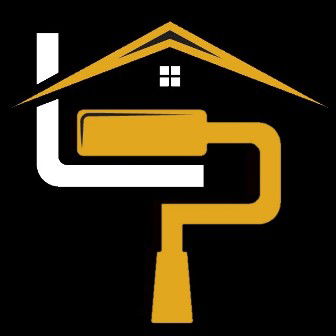Licensed vs. Unlicensed: What You Need to Know

Key Features
- Legal Protection: Licensed professionals adhere to state regulations and standards, protecting you from legal repercussions.
- Financial Safety: Insurance ensures that any injuries or damages during the job are covered, saving you from potential financial liability.
- Quality Assurance: Licensing serves as proof of competence and training, ensuring higher quality work and adherence to industry standards.
Licensed vs. Unlicensed
When hiring a professional for a service, you may come across the term "licensed and insured". But what does it mean?In simple terms, it refers to professionals who have obtained the necessary licenses to operate and carry insurance coverage. This is common in industries like construction, home improvement, and security services.
Why does it matter? Hiring licensed and insured professionals can protect you from potential financial and legal risks. It also ensures a certain level of competency and adherence to industry standards.
On the other hand, hiring unlicensed individuals can expose you to various liabilities. This includes potential financial losses and legal implications.
In this article, we will delve into the differences between hiring licensed and insured professionals versus unlicensed individuals. We aim to provide you with the knowledge you need to make informed decisions.
Whether you're a homeowner, business owner, or someone seeking professional services, this guide is for you.
Understanding Licensing and Insurance
Licensing is a process that professionals undergo to legally operate in their field. It involves meeting certain criteria set by regulatory bodies. These criteria often include passing exams, completing training, and adhering to industry standards.
Insurance, on the other hand, is a safety net. It protects both the professional and the client from potential financial losses. For instance, if a worker gets injured on the job, their insurance can cover the medical costs.
There are different types of insurance that professionals can hold. These include:
- Liability insurance: Covers damages caused by the professional's work.
- Workers' compensation: Covers medical expenses and lost wages if a worker gets injured on the job.
- Professional indemnity: Covers legal costs and damages if a professional is sued for negligence.
Licensing and insurance go hand in hand. They provide a level of assurance to clients that the professional is competent, ethical, and financially responsible.In the following sections, we will explore the legal implications of hiring licensed vs. unlicensed professionals, the risks involved, and the importance of these factors in various industries.
Things to Know
- Licensed professionals are required to meet industry standards and regulations, ensuring higher quality work and safety.
- Insurance covers accidents, saving both the contractor and client from unexpected financial burdens.
- Hiring unlicensed workers may lead to subpar work, potential legal issues, and increased financial liability.
- Always verify a contractor's license and insurance by asking for proof or checking with the state’s licensing board.
- Choosing licensed professionals might seem like a higher upfront cost, but it provides long-term security and peace of mind.
The Legal Implications of Hiring Licensed vs. Unlicensed Professionals
Hiring a licensed professional is not just a matter of quality assurance. It's also a legal requirement in many industries. Professionals operating without a license can face penalties, including fines and even jail time.
For clients, hiring unlicensed workers can lead to legal complications. If an unlicensed worker causes damage or injury, the client may be held liable. This is especially true if the client was aware that the worker was unlicensed.
In contrast, hiring licensed professionals provides legal protection. If a dispute arises, clients have more recourse options. They can file complaints with the licensing board or seek legal action.
In the next section, we will delve into the types of insurance that licensed professionals typically hold and how they protect both the professional and the client.
Types of Insurance for Licensed Professionals
Licensed professionals often carry several types of insurance. One of the most common is liability insurance. This covers damages or injuries that may occur during the course of their work.
Another common type is workers' compensation insurance. This covers medical expenses and lost wages if a worker is injured on the job. It's a legal requirement for many businesses.
In the next section, we'll explore the risks associated with hiring unlicensed workers. We'll also discuss how insurance plays a crucial role in mitigating these risks.
The Risks of Hiring Unlicensed Workers
Hiring unlicensed workers can pose significant risks. One of the most glaring is the lack of accountability. Unlicensed individuals may not adhere to industry standards or regulations.
This can result in subpar work or even dangerous situations. For instance, an unlicensed electrician might not follow safety protocols, leading to potential fire hazards.
Another risk is financial liability. If an unlicensed worker gets injured on your property, you could be held responsible for their medical expenses. This could lead to costly legal battles.
Furthermore, unlicensed workers may not have the necessary skills or training to perform the job correctly. This could result in poor quality work that needs to be redone, costing you more in the long run.
In the next section, we'll delve into the importance of licensing in ensuring competency and adherence to industry standards.
The Importance of Licensing in Ensuring Competency
Licensing serves as a proof of competency. It shows that a professional has met certain standards set by regulatory bodies. This includes passing exams and completing necessary training.
Moreover, licensed professionals are required to adhere to industry standards. This ensures that the work they perform is up to par and safe. It also means they are more likely to stay updated with the latest techniques and technologies in their field.
In essence, hiring a licensed professional gives you the assurance that the person you're hiring is qualified and competent. This can save you from potential headaches down the line.
In Our Experience
"In our years of experience working with contractors, we’ve seen countless situations where choosing a licensed and insured professional made all the difference in the success of a project. From avoiding legal complications to ensuring high-quality work, licensed contractors are a step above the rest. Clients who opt for unlicensed workers often face costly rework, legal issues, or financial liabilities—problems that could easily be avoided by hiring a licensed professional from the start."
Insurance: A Safety Net for Clients and Service Providers
Insurance plays a crucial role in any professional service. It serves as a safety net, protecting both the service provider and the client. For instance, if an accident occurs during a project, the insurance can cover the costs.
For the client, this means they won't be left to foot the bill. For the service provider, it means they won't go bankrupt due to an unforeseen incident. It's a win-win situation.
In short, insurance provides peace of mind. It's a sign that the professional you're hiring takes their job and your project seriously.
Special Considerations for Armed Security Guards
When it comes to armed security guards, licensing and insurance take on even greater importance. These professionals carry firearms and are tasked with protecting people and property. This comes with inherent risks.
A licensed and insured armed security guard has undergone rigorous training. They know how to handle their weapon safely and respond to threats effectively. Their insurance covers any potential incidents, protecting both the guard and the client.
In essence, hiring an armed security guard who is licensed and insured is not just a smart choice. It's a necessary one for the safety and security of all involved.
Verifying a Professional's License and Insurance
Before hiring a professional, it's crucial to verify their license and insurance. This can usually be done through state licensing boards or by requesting proof directly from the professional.
Remember, a legitimate professional will have no issue providing this information. It's a key part of their credibility and trustworthiness.
The Long-Term Benefits of Hiring Licensed and Insured Professionals
Hiring licensed and insured professionals may seem like an added expense initially. However, the long-term benefits far outweigh the initial cost.
These professionals are more likely to adhere to industry standards and regulations. This can result in higher quality work and increased property value.
Moreover, insurance provides a safety net in case of accidents or damages. This can save you from potential financial liabilities. In the end, hiring licensed and insured professionals is a wise investment.
Do You Have Questions? Give Us A Call With Any & All! 503-389-5758
-
People Also Ask:
Why is it important to hire licensed and insured professionals?
Hiring licensed and insured professionals ensures that the contractor is qualified and meets industry standards. It protects both you and the contractor from legal and financial risks, offering peace of mind and safety.
What risks are involved in hiring unlicensed workers?
Unlicensed workers may not follow proper safety or quality standards, leading to subpar work or even dangerous outcomes. Additionally, if they get injured on your property, you could be held liable for their medical expenses.
How can I verify if a professional is licensed and insured?
You can verify a professional's license and insurance by checking with your state’s licensing board or asking the contractor to provide proof. A credible professional will have no issue providing this information.
-
SUBSCRIBE TO OUR BLOG: Stay informed with the latest in Painting and DIY projects by subscribing to Lightmen Painting. Get insights, tips, and more delivered straight to your inbox. We would also love to know what you would like to read about, leave thoughts on where we should go next. Interests, Topics, Ideas, all are welcome.
If your in the Portland, Or. area and need advice or a free no obligation estimate call us at 503-389-5758 or email scheduling@lightmenpainting.com
Shout Out
Celebrating The Raleigh Paint Contractor: Your Guide to Quality Painting Services
From the team at Lightmen Painting, we extend our highest praise to The Raleigh Paint Contractor for their dedication to providing valuable insights on interior painting costs and services. Just as we are committed to transparency and excellence in our painting work, The Raleigh Paint Contractor helps homeowners understand the true costs and benefits of quality interior painting. Their commitment to customer education and satisfaction aligns perfectly with our mission to deliver top-tier painting solutions.
Thanks for stopping by Lightmen Daily! Stay tuned for more practical tips and expert advice on making your painting projects flawless, from wall to floor!
Definitions
- Licensed Professional: A contractor who has met the required standards and regulations to legally provide services in their industry.
- Insured: Having coverage that protects against financial liability in case of accidents or damages during a job.
- Liability Insurance: A type of insurance that covers damages caused by the professional’s work, protecting both the client and contractor.
- Workers' Compensation: Insurance that covers medical expenses and lost wages for workers injured on the job.
- Professional Indemnity: Insurance that covers legal costs and damages if a professional is sued for negligence.
- Regulatory Compliance: Adhering to local and state laws and guidelines governing the industry, often a requirement for licensing.
- VOCs: Volatile Organic Compounds—chemicals that are harmful to health and the environment, often found in non-eco-friendly products.
- Competency: The ability of a professional to perform their job to industry standards, often validated by licensing.
- Financial Liability: The responsibility for monetary damages or injuries, which can be transferred through insurance coverage.
- Unlicensed Worker: A person providing services without meeting state or industry qualifications, often leading to legal and quality risks.
Lightmen Painting Serving: Portland, Tigard, Lake Oswego, Tualatin, West Linn, Milwaukie, Sherwood, Happy Valley, Oregon City, Beaverton, Hillsboro, Gresham -Trade Partners-
